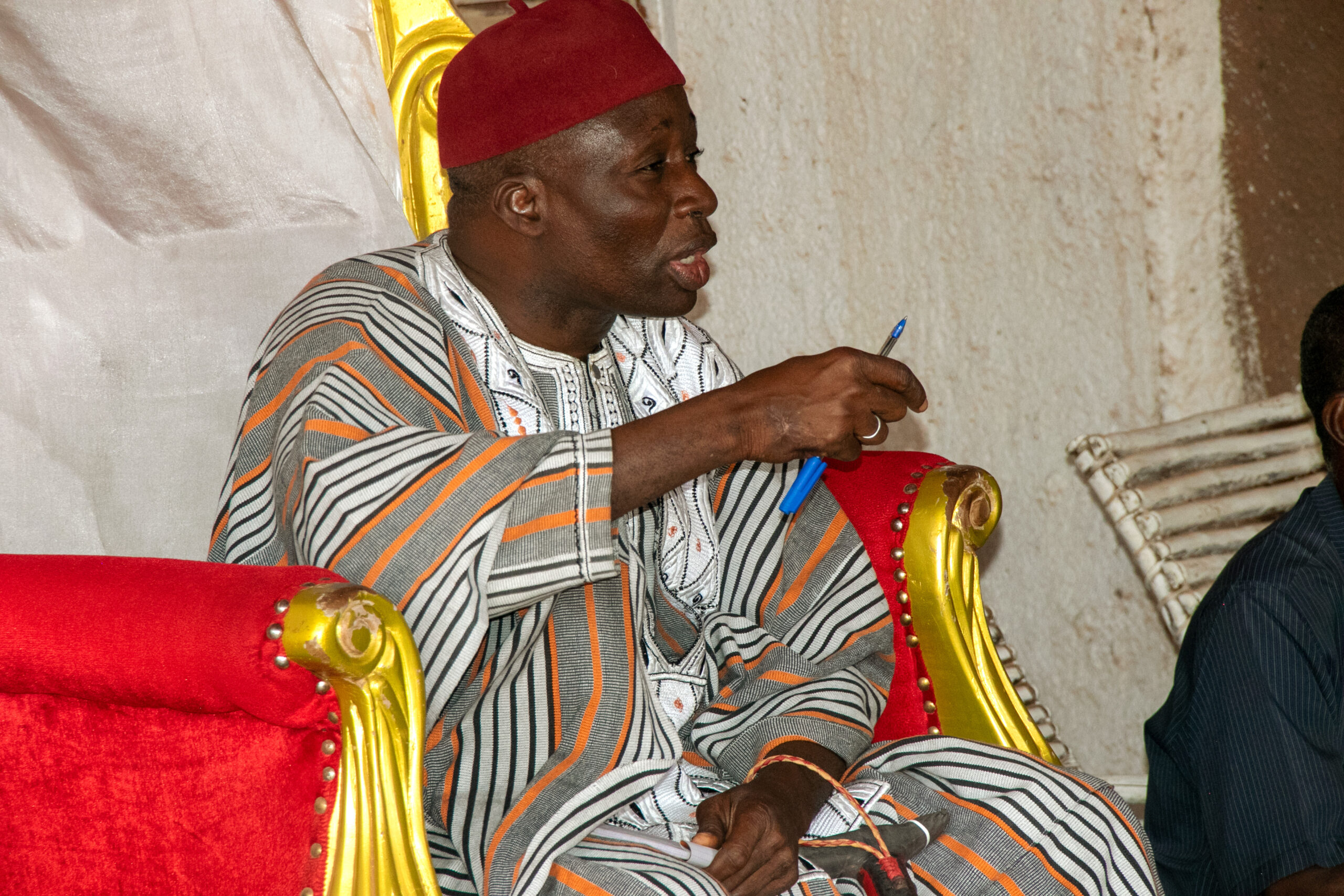Strengthening the role of women and youth in security governance in Burkina Faso

Long cited as a model of stability and social cohesion in a region facing multiple crises and violence, Burkina Faso is now facing increasingly frequent, violent and deadly armed attacks, as well as a resurgence in the number of violent intra- and inter-community conflicts.
Through an innovative approach to involve customary and religious leaders in the dissemination of peace messages, Interpeace organised caravans in 12 communes in Burkina Faso to sensitise populations on their involvement in security governance, with a particular focus on promoting the integration of women and youth in security management.
The deterioration of the security situation requires the involvement of the entire community, in particular women, who represent 51.7% of the population, and young people under the age of 15, who represent 45.3% of the population. This segment of the population suffers the worst forms of violence due to the security crisis—women become survivors of gender-based violence and young people, due to the lack of employment opportunities and frustration, tend to be recruited by organised armed groups.
Recent Interpeace research has shown the low involvement of women and youth in local security governance. Yet the participation of youth and women in Burkina Faso is a key factor in improving governance, particularly security governance in the country. The participation of youth and women is essential in strengthening local and national resilience and social cohesion.
The caravans Interpeace organised included educational talks by trained youth in forums discussing the integration of women and youth in peacebuilding, radio programmes promoting social cohesion, conflict prevention and management, and debates on the Interpeace analysis report on the security sector in the country.
Religious tradition and practice begin early in the family and continues throughout an individual's life. Religious and traditional leaders are among the most influential and respected people in society, and their involvement and ownership in peacebuilding remains central to conflict prevention and transformation.
As for the youth, they have a great role to play in national reconciliation and social cohesion. This requires that each young person demonstrate responsibility and civic engagement which strengthen their capacities on conflict transformation, non-violent communication and the responsible use of social networks.
"Women and young people are the most numerous, and if we involve them in the fight against terrorism and insecurity, we will be able to fight insecurity effectively. Women are important, young people are important," said the High Commissioner of the Séno province.
Noumpoua Tankoano from Fada N'Gourma underlined the importance of the educational talks, especially for internally displaced people like herself who have fled their localities because of the violence.
"Many of the women among us have lost their husbands, other men have abandoned their wives in the hope of surviving. Women are left as widows, with a large number of children to raise. The adversity in which they live is likely to influence them and lead them into unhealthy behaviour," she said.
"This talk we had on the theme of supporting women in terrorist actions, and resolutions to deter them was necessary and gave us the confidence to contribute to the promotion of peace in our communities.”
These caravans are part of Interpeace's initiative to improve conflict prevention and security governance in the Boucle du Mouhoun, Centre-North, East and Sahel regions. Interpeace would like to thank the Government of Canada, through the Stabilization and Peace Operations Program of Global Affairs Canada, for its financial support.
